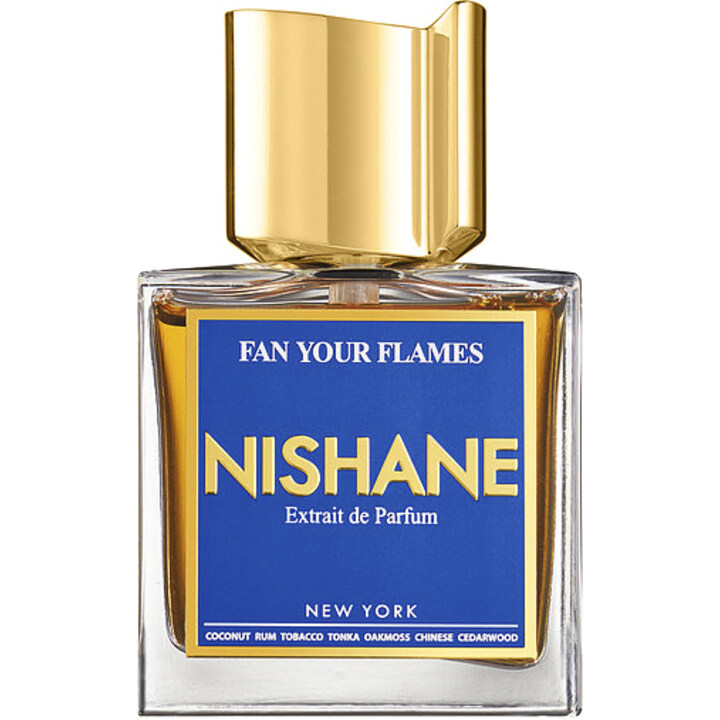12
Very helpful Review
Translated
Show original
Set your life on fire. Seek those who FAN YOUR FLAMES
Said the Sufi Grand Master, Jalal ad-Din al-Rumi. Nishane probably intends here a subtle implication to the mysticism of the Mevlevis. Rumi is known to us all? I hope so :) If not, here a little summary:
Like almost every dervish, Rumi has also "travelled" a lot. "Dying to be born. Walking to arrive." defines the phenomenon of travel. His travel activities cover more than 4000 km: from his birthplace (born 1207 in Balch - today's Afghanistan) via Samarkand in Uzbekistan, Iran and Syria, where Rumi studied in Damascus and Aleppo in his twenties. His last stop was Konya in Turkey, where Rumi spent the last 50 years of his life. Today, Rumi's tomb attracts reverent followers and heads of state every year for a swirling dervish ceremony (Sema) on December 17th, the anniversary of his death (Seb-i Arus).
Rumi belongs to the few grandmasters (e.g. besides Khalid-i Bagdadi) who have been given the epithet "Maulana":Arabic for "our master/master". Accordingly, he is known in Turkey, for example, rather under the name "Mevlana". This inspiring, world-famous poet, whose fruitful works are still a muse for people like Madonna and Deepak Chopra, has become a kind of self-help guru, as he reflects the universal, timeless concerns of humanity. His legacy is omnipresent, such as in the multimedia chamber opera Monsters of Grace, which is based on his works. Goethe too, has intensively studied Rumi in his West-Eastern Divan. There are various analyses of why Rumi is so popular (his Masnawi is one of the best-selling books and is considered one of the most important Islamic texts). States argue about who Rumi belongs to: Afghanistan - birthplace, Iran - all his texts are in Persian, Turkey - the place where he was reborn with shams.
A little lecture:
With your soul, mine has changed mixed like water with the wine.
Who can separate wine from water,
who will take you and me out of the clubs?
But now back to Nishane:
Just by the implication to Rumi alone I would not have imagined the scent to be so dark and gloomy. With Rumi I rather associate the "light". I can't imagine Rumi smelling like Nishane :) I don't mean that I don't like the scent. No, on the contrary, Fan Your Flames smells very pleasant. Especially the prelude with coconut pleases me extremely. This smoke and the mystical darkness behind it doesn't bother me either. As I said, Fan Your Flames has something mystical about it - especially the rum, which embraces the coconut and with all its masculinity, which dominates recessive and feminine coconut. Makes you think "oh, where did the coconut go?!" And you start looking. It should be noted that the search for the vanished coconut will not be an easy one - the path is dark. I can well imagine that the madrasah where Rumi taught - smelled very much like Nishane
Like almost every dervish, Rumi has also "travelled" a lot. "Dying to be born. Walking to arrive." defines the phenomenon of travel. His travel activities cover more than 4000 km: from his birthplace (born 1207 in Balch - today's Afghanistan) via Samarkand in Uzbekistan, Iran and Syria, where Rumi studied in Damascus and Aleppo in his twenties. His last stop was Konya in Turkey, where Rumi spent the last 50 years of his life. Today, Rumi's tomb attracts reverent followers and heads of state every year for a swirling dervish ceremony (Sema) on December 17th, the anniversary of his death (Seb-i Arus).
Rumi belongs to the few grandmasters (e.g. besides Khalid-i Bagdadi) who have been given the epithet "Maulana":Arabic for "our master/master". Accordingly, he is known in Turkey, for example, rather under the name "Mevlana". This inspiring, world-famous poet, whose fruitful works are still a muse for people like Madonna and Deepak Chopra, has become a kind of self-help guru, as he reflects the universal, timeless concerns of humanity. His legacy is omnipresent, such as in the multimedia chamber opera Monsters of Grace, which is based on his works. Goethe too, has intensively studied Rumi in his West-Eastern Divan. There are various analyses of why Rumi is so popular (his Masnawi is one of the best-selling books and is considered one of the most important Islamic texts). States argue about who Rumi belongs to: Afghanistan - birthplace, Iran - all his texts are in Persian, Turkey - the place where he was reborn with shams.
A little lecture:
With your soul, mine has changed mixed like water with the wine.
Who can separate wine from water,
who will take you and me out of the clubs?
But now back to Nishane:
Just by the implication to Rumi alone I would not have imagined the scent to be so dark and gloomy. With Rumi I rather associate the "light". I can't imagine Rumi smelling like Nishane :) I don't mean that I don't like the scent. No, on the contrary, Fan Your Flames smells very pleasant. Especially the prelude with coconut pleases me extremely. This smoke and the mystical darkness behind it doesn't bother me either. As I said, Fan Your Flames has something mystical about it - especially the rum, which embraces the coconut and with all its masculinity, which dominates recessive and feminine coconut. Makes you think "oh, where did the coconut go?!" And you start looking. It should be noted that the search for the vanished coconut will not be an easy one - the path is dark. I can well imagine that the madrasah where Rumi taught - smelled very much like Nishane
2 Comments


